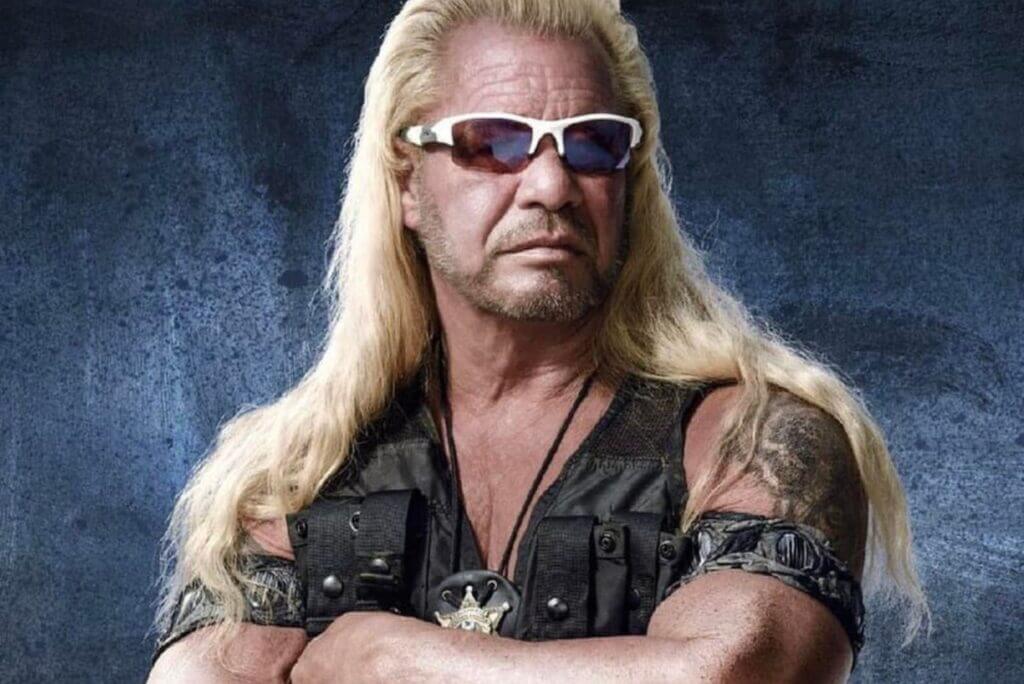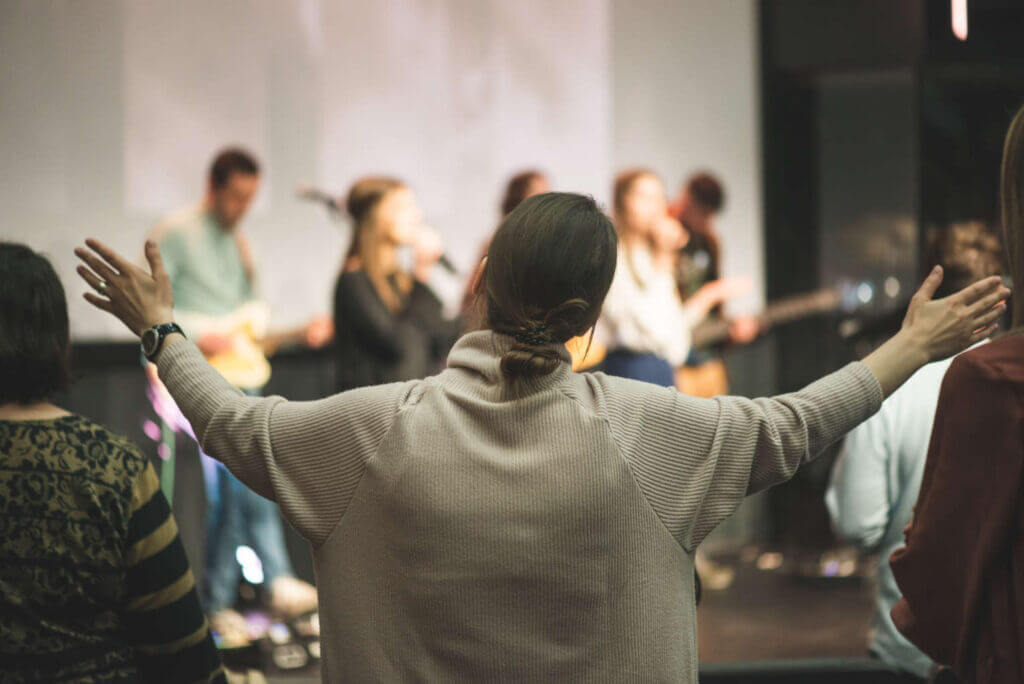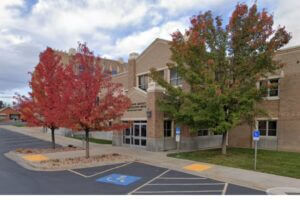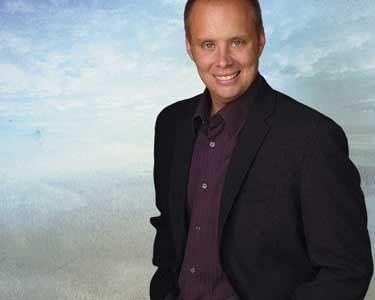 Led by Matthew Barnett, Los Angeles’ Dream Center has developed from an idea in 1994 into a hub of more than 270 local ministries now replicated around the world
Led by Matthew Barnett, Los Angeles’ Dream Center has developed from an idea in 1994 into a hub of more than 270 local ministries now replicated around the world
Joel and Gina Guzman found hope on a hilltop near downtown Los Angeles.
This hard-working couple with seven children and one on the way were laid off within a month of each other. The size of their family made it hard to receive assistance; shelters couldn’t accommodate them. At one point, Gina was even told that she and her children could get help if she would separate from her husband.
Finally, the Guzmans received a two-week hotel voucher. The day before it expired, Joel decided to take his family on a spur-of-the-moment bus ride. They didn’t know where they were going; they just got on the bus. When it stopped at Kent and Alvarado streets, Joel felt his family should get off. They weren’t familiar with the area, but Joel again sensed the way they should go. When the Guzmans walked up the hill and saw the Dream Center, they thought it was a small church outreach and hoped they could at least get another hotel voucher.
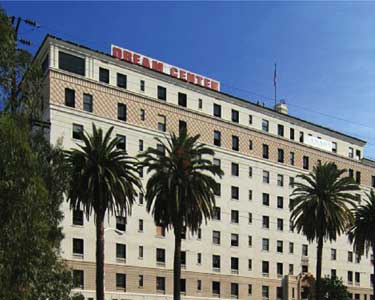 Unfortunately, at the time, the Dream Center didn’t have space available for the family. Gina started crying. They didn’t know what they were going to do. While browsing in a local store, Joel told his family they needed to say a quick prayer. Twenty minutes later they received a call from the Dream Center—a room had opened up.
Unfortunately, at the time, the Dream Center didn’t have space available for the family. Gina started crying. They didn’t know what they were going to do. While browsing in a local store, Joel told his family they needed to say a quick prayer. Twenty minutes later they received a call from the Dream Center—a room had opened up.
The family has since discovered that the Dream Center is much more than they could ever have imagined. It is comprised of more than 270 outreaches that operate on a 9-acre, 360,000-square-foot facility. Open 24/7, 365 days, this center reaches more than 40,000 people each week, providing food and clothing.
The mission’s influence has expanded beyond Los Angeles with a campus in New York. Plus, 85 independent centers modeled after the Dream Center have opened worldwide. In 2005, the Dream Center also opened The Movement LA, a ministry-training and discipleship school.
But the Guzmans experienced firsthand that the Dream Center is more than just a place that provides for physical needs. It’s a place where dreams are made.
At the Dream Center, Gina says, you get a chance to “accomplish what you want to be.” Joel adds that when everything is taken away from you, you find out what’s most important in life: “We lost everything for a reason … for God to find us. God found us.”
It’s only fitting that the Dream Center helps people dream again because its very existence is based on dreams both Matthew Barnett and his father, Tommy Barnett, had to reach the hurting and lost of Los Angeles with the hope and love of Christ. Forty years ago, while Tommy ministered in Los Angeles as an 18-year-old, God put a dream in his heart for the city. Years later, when Matthew was 16, God spoke to him that he would one day be in Los Angeles. When the time came for the two men to finally realize their dreams of planting a church in the City of Angels, they had no idea it would become what it is today.
Not a ‘Regular Church’
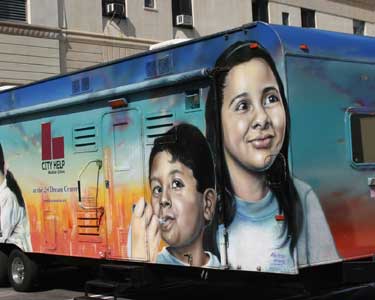 In 1994, Tommy Barnett, pastor of Phoenix First Assembly, appointed his 20-year-old son Matthew as pastor of Bethel Temple in inner-city Los Angeles, the Dream Center’s first location. Their plans were to simply build a “regular church.” But they soon realized they weren’t in a typical neighborhood.
In 1994, Tommy Barnett, pastor of Phoenix First Assembly, appointed his 20-year-old son Matthew as pastor of Bethel Temple in inner-city Los Angeles, the Dream Center’s first location. Their plans were to simply build a “regular church.” But they soon realized they weren’t in a typical neighborhood.
On Matthew’s first day as pastor, he heard shots being fired in front of the church. When he went outside, he saw a teenage boy sliding down the church steps. The boy died in Matthew’s arms.
On another occasion, Tommy was jogging through skid row and downtown and grew discouraged by the surroundings. The smell of urine was in the air. People were lying on the street. There were men on the street corners screaming. People were sleeping in boxes.
He thought, Lord, how are we ever going to be able to ever build a church here? They have no jobs. They have no fathers. It’s anarchy in the city.
“But as I ran through the city,” he says, “God spoke to my heart that if we would reach people nobody else wanted because they had nothing to offer, that God would give us people everybody wanted.”
Matthew began doing just that. With support from Phoenix First Assembly, he bought a house in the neighborhood to help drug addicts recover. As soon as they opened the first house, they needed a second and a third. Eventually, they owned 16 houses.
Soon it became apparent that the people needed to get away from the drugs, pimps and alcohol. “It was easy to get people saved. We could have altar calls of 200 or 300, but we lost them all,” Tommy explains. “We decided the only way we were going to keep them was to get a place and disciple them for at least a year.”
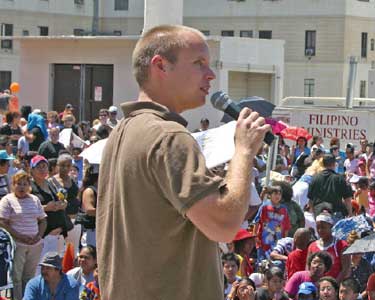 The church needed a facility where they could offer a residential discipleship program. One day, as Matthew drove along the Hollywood freeway, he saw the old Queen of Angels hospital for sale. When he stopped to make an offer, the sales agents basically laughed at him and kicked him out of the office. Paramount Studios was buying the property for $16 million—why in the world would they sell it to him?
The church needed a facility where they could offer a residential discipleship program. One day, as Matthew drove along the Hollywood freeway, he saw the old Queen of Angels hospital for sale. When he stopped to make an offer, the sales agents basically laughed at him and kicked him out of the office. Paramount Studios was buying the property for $16 million—why in the world would they sell it to him?
But when Matthew met with the sisters of the Catholic Church, who owned the building, they sold it to him for $3.9 million. And once again, God provided the finances for the purchase.
It’s a common theme in both the Barnett and the Dream Center’s storylines. Matthew believes that when you’re meeting the needs of the people, God opens one door after another. “Personal dreams may fall on the wayside, but everything that is connected to the heart of God—feeding people, taking the families that are homeless, runaways—God has always supplied for.”
Amid the economic recession, the Dream Center has not only been able to sustain ministry, but even expand. Matthew says they’ve added 200 residential spaces “because God said this is the moment to do the biggest thing you’ve ever done before.”
What a Difference a Dream Center Makes
The Dream Center ministers to people by meeting practical needs. But it also exists to inspire people to dream. In his new book, The Cause Within You: Finding the One Great Thing You Were Created to Do in This World, Matthew shares that God has a specific plan for each person. And on the ministry campus, he and his leaders create an atmosphere that helps people change and find purpose for their lives.
This is certainly true for Kory Barmore, who joined a gang in Phoenix when he was only 12 years old. After 17 years of “being a menace to society,” Kory says he was essentially down to two choices: kill or be killed. He told his mother that if he didn’t get out of Arizona he’d end up in jail or worse, dead.
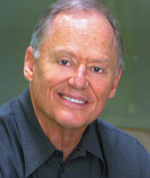 Through family friends, Kory learned of the Dream Center. Reluctantly, he decided to go for 30 days. He’s been there two years.
Through family friends, Kory learned of the Dream Center. Reluctantly, he decided to go for 30 days. He’s been there two years.
“God just started touching me and healing me and showing me stuff. I just stuck it out. … The craziest part was I hadn’t planned on changing.”
Matthew was instrumental in Kory’s new outlook on life. When he first arrived at the Dream Center, Kory heard Matthew’s constant encouragement and wondered why someone would keep lifting up people like him. But he soon decided that if Matthew believed in him, then he needed to as well.
“I began to believe … “˜I am somebody. I am somebody special. I do have a brighter future,'” Kory says. “It made me start speaking life instead of death.”
Matthew possesses a unique ability to challenge people to a higher standard yet simultaneously give them a sense that they are accepted, even before they get saved. He says that the church has long had the attitude “when you believe what we believe, then we’ll let you belong.”
But Matthew explains the example Jesus set. When He called the fishermen to follow Him, He didn’t give the men a doctrine or 10-point plan. Jesus just called them and they came. As He taught them, rebuked them and sharpened them, they grew. But first of all, Matthew says, “He let them belong and then believe.”
“That’s the model by which we live: You belong first but then believe. If you’re a crack head you belong here more than anybody else. If you’re a prostitute … you belong here.”
Earning Street Cred
For Matthew, however, it took a while to “belong” in downtown Los Angeles. For the first few years, people in the neighborhood called him names and questioned his motives. They fully expected him to leave the inner city, he says. But he eventually earned respect on the streets. And now, 16 year later, he’s such a fixture in the community that he even plays softball with gang members in the neighborhood.
“Whoever stays longer in the community will win the battle for influence on the kids,” he explains. “Liquor stores have come and gone now. Gang members have been locked up and gone to prison. But we’ve still been here.”
In an urban community, Matthew says credibility isn’t based only on having outreaches that meet people’s physical needs; it’s earned by how long you stay consistent in that mission.
The Dream Center and Matthew have certainly remained faithful and made a noticeable difference in the neighborhood. When crime dropped in the area, a police officer told Matthew, “You’ve changed the atmosphere of the community. … The peer pressure in the neighborhood is to do right now instead of doing wrong.”
As further proof of the the ministry’s respect on the streets, the hospital building on campus is the only building that never gets tagged with graffiti.
“The gang members respect us because we pay for their mothers’ funerals,” Matthew says. “We take care of their mothers and their gang members when they die; we cover their funerals and help them. We’ve earned the right to be heard in the neighborhood.”
It’s also the ministry’s nontraditional approach that makes it so effective, says pastor Chris Hodges, whose Church of the Highlands started a Dream Center in Birmingham, Ala., in 2008. “The traditional approach to meeting need was write the check, send the food and then go back to your church, your home, your neighborhood,” Hodges says. “But Dream Centers live among the people, sleep there, work with them, disciple them. So no longer is it an outreach, it’s an “˜inreach.’ It is your neighborhood.”
Like Father, Like Son
Both Tommy and Matthew travel, speaking to raise support to keep the Dream Center operating. But what’s most compelling about this father-son ministry power team is their real-life portrayal of John 5:19. Jesus said, “I say to you, the Son can do nothing of Himself, but what He sees the Father do; for whatever He does, the Son also does in like manner” (NKJV).
God gave Matthew a dream for his own life, but he’s approached ministry in a manner like his father. At Phoenix First Assembly, Matthew saw Tommy reach out to those nobody else wanted. He recalls when his dad sadly watched hundreds walk out of a meeting because they didn’t want to go to a church that brought in dangerous people from the streets. “I’ve seen him fight for those types of people for years,” Matthew says. “He laid that foundation so deep in my heart.”
That foundation is also what the Dream Center is built upon. Tommy often says: “Find a need and meet it. Find a hurt and heal it.” And that’s exactly what Matthew Barnett aims to do every day.
“I don’t feel like I’m a pastor of this city. I feel like I’m a city janitor just walking through the streets picking up broken pieces and telling people they can dream again. That’s why I feel like I am here.”
See an error in this article?
To contact us or to submit an article



